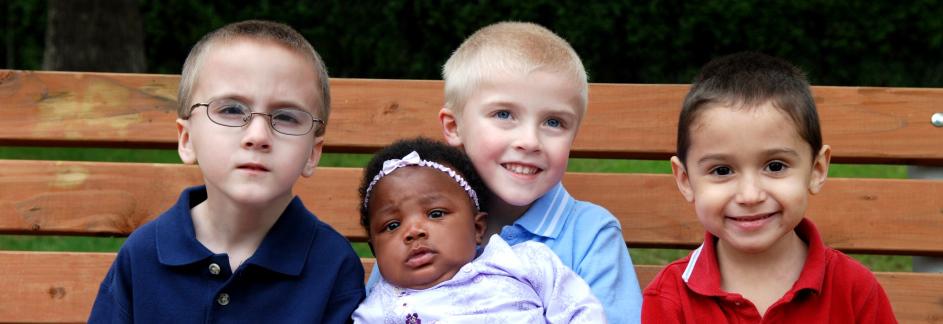Within the framework of Bahá’í teachings, children are regarded as the most precious treasure, an idea that reverberates through the teachings of Baha’u’llah, the founder of the Bahá’í Faith. Understanding this concept is pivotal not only for Bahá’ís but also for anyone interested in progressive educational philosophies and holistic development approaches. This exploration presents an extensive overview of the Bahá’í teachings regarding children, emphasizing their intrinsic value and the responsibilities of guardians, communities, and society at large.
The Spiritual Essence of Children
In Bahá’í thought, children are characterized by their innate purity and closeness to the divine. They embody the potential for spiritual growth and development, serving as the canvas upon which familial, societal, and spiritual education can be painted. This education is considered crucial, as it lays the foundation for virtuous living and moral responsibility. The Bahá’í scriptures indicate that the natural disposition of a child is one of goodness, which must be nurtured through compassionate guidance and an understanding of spiritual principles.
Parental Responsibilities
Parents, as the primary educators, bear the immense responsibility of fostering an environment where children can flourish emotionally, intellectually, and spiritually. This requires not merely the provision of physical sustenance but also the development of virtues such as kindness, honesty, and integrity. The Bahá’í teachings encourage parents to exemplify these virtues in their own lives, as children often mirror the behaviors and values modeled by their guardians. Thus, the first educators must strive to create a harmonious home environment that emphasizes love, respect, and understanding.
Community Support and Engagement
A child’s education extends beyond the confines of the family unit. The role of the community is crucial in supporting the holistic development of children. In Bahá’í communities, collective efforts manifest through various educational programs, nurturing the spiritual, intellectual, and social capacities of children. Initiatives such as junior youth programs create platforms where children can engage in learning together, fostering a sense of unity and collaboration, which are instrumental in a world increasingly characterized by division.
The Role of Education
Education, within Bahá’í teachings, is not limited to traditional academic learning; it encompasses the education of the heart and spirit. A balanced curriculum that integrates moral and ethical teachings with academic subjects is embraced. This multidimensional approach aims to cultivate not only knowledgeable individuals but also compassionate ones who can contribute positively to society. Learning experiences should stimulate critical thinking, creativity, and a sense of cosmic responsibility, aligning personal development with global needs and challenges.
The Importance of Play
Further, the Bahá’í perspective emphasizes the significance of play in a child’s developmental process. Play is not merely a recreational activity; rather, it is recognized as a vital component of learning. Through play, children develop essential social skills, creativity, and emotional resilience. It serves as an avenue for expression and exploration, allowing them to navigate complex concepts in a manner that is engaging and profound. Thus, a balanced approach that integrates both structured learning and opportunities for creative play is advocated.
Building Character Through Service
Service is another cornerstone of Bahá’í teachings regarding children. Teaching children the importance of service cultivates a sense of empathy and connection to humanity. Volunteer work and community service projects inspire children to think beyond themselves, understanding their role within a broader societal framework. These experiences become formative in nurturing a generation that prioritizes collective well-being over individual gain.
Encouraging Global Citizenship
With the world rapidly becoming interconnected, cultivating a sense of global citizenship among children has never been more vital. Bahá’í teachings implore educators and parents to expose children to diverse cultures and perspectives, fostering an appreciation for the richness of humanity. Encouraging multilingualism and intercultural understanding is instrumental in crafting individuals who can think critically and act compassionately on global issues, embodying the principle of unity in diversity.
Addressing Challenges
While the ideals of child nurturing in Bahá’í thought are commendable, practical challenges abound. Societal pressures, economic hardships, and evolving cultural norms can hinder the embodiment of these principles. Addressing these challenges requires concerted efforts from families, communities, and educational institutions to create supportive environments that allow every child to thrive. Open dialogue, adaptability, and the integration of progressive educational methodologies can help mitigate these challenges, ensuring that the promise of Bahá’í teachings is fulfilled.
Conclusion
In conclusion, the Bahá’í teachings encapsulate a profound reverence for children as our most precious treasure. They underscore the multifaceted roles of parents, communities, and education in nurturing the potential encapsulated within each child. By fostering an environment rich in love, learning, and service, we not only uphold the sanctity of our future generations but also pave the way for a more harmonious and united world. As we navigate the complexities of modernity, let us heed the Bahá’í precept of cherishing our children and equipping them to become the architects of a brighter future.
